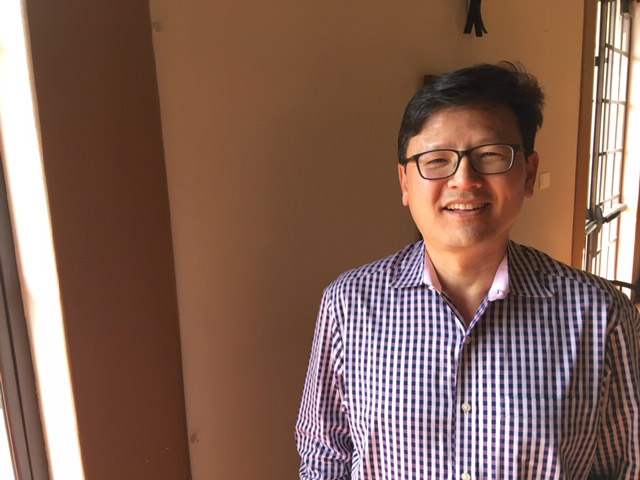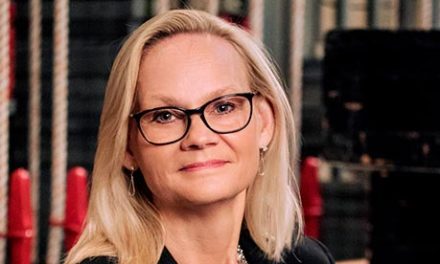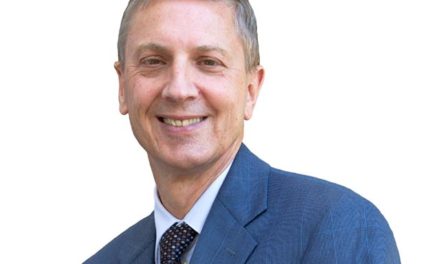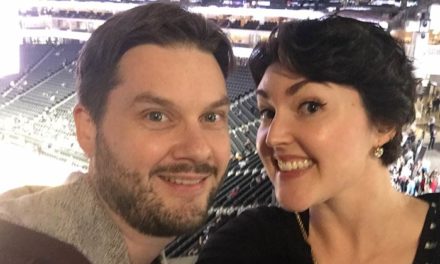Dr. Carl Shin Takes Pains to Relieve Yours
His Center for Interdisciplinary Spine still thrives during the pandemic
By Ed Goldman
I almost don’t care what causes your pain,” Dr. Carl Shin is telling and kind of surprising me—until he completes the thought. “My job is to help you recover from it. So let’s do that instead of dwelling on what caused it to happen.”
Korean-born Shin is the founder and chief medical officer of the Center for Interdisciplinary Spine. It’s located on one of Sacramento’s more mixed-use throughfares, nestled among and convenient to restaurants (both sit-down and drive-through), a strip mall or five, a church, a mattress showroom, a store that sells containers for every imaginable use, a cineplex, an ice cream shop and a Pep Boys auto parts store. To summarize, it’s a serious but not forbiddingly starchy neighborhood.
Photo of Dr. Carl Shin by Ed Goldman
As it happens, today we’re across the street from Pep Boys, chatting in a conference room in the back of Shin’s wife’s incongruously Parisian patisserie, which she’s christened Estelle’s though her name is Esther. No matter. Once you walk in the door of this immaculate bakery, decorated all in white, the mixture of vanilla, nutmeg, cinnamon and coffee aromas will have you suggesting she change the name to Heaven. Shin and his wife have four children.
My initial reason for wanting to interview Shin—whose driver’s license would probably verify that he’s 54 years old but whose youthful looks and energy peg him at barely 35—was because of the curriculum of self-help courses he designed to transition patients, whose ages range mainly from 30-50+, from opioids to pain management. When the pandemic shutdown hit, we decided to chat “in a couple of weeks” about his practice, since I erroneously assumed he or his patients would be canceling in-office exams.
Not many did. And now, a full six months later, we pick up our conversation where we left off.
“Oh, we thought about closing the clinic down at the start of the pandemic because we figured people would stay away,” he says. “But this caused us to worry that the hospitals would be flooded with patients in pain needing opioids, which we do prescribe when needed. So, while taking tremendous precautions to keep visits safe, we decided to stay open.”
That collective sigh of relief you might have heard back then was from the 1,300-1,400 patients Shin and his staff now see each month (down from as many as 2,000 patients per month pre-pandemic). But don’t get the idea that Shin’s clinic suddenly became an opioid dispensary.
“I decided to do a self-audit and I reviewed 101 patient charts,” he says. “I found that out of 58 new patients, we started only five of them on very small doses of opioids.” He also had begun an “opioid-taper” initiative to reduce patients’ reliance on pharmaceuticals
Including him, Shin says he employs ”around 25 people at the center: a part-time doctor, a full-time physician’s assistant, two psychologists, one physical therapist and several other professionals.” The center is a respected referral option for occupational medicine claims, while Shin is also a much sought-after expert witness in worker compensation cases. He says he encounters “not many” fraudulent claims.
“Pain is very real,” he says, “even though it’s a very subjective experience. You can tell me what’s hurting and I may help you better define it but I’m not in your head. So pain usually comes under the category of ‘qualia.’”
That’s a term for the individual perception of things as varied as pain, taste and colors. According to the Stanford University Encyclopedia of Philosophy, “Feelings and experiences vary widely. For example, I run my fingers over sandpaper, smell a skunk, feel a sharp pain in my finger, seem to see bright purple, become extremely angry. In each of these cases, I am the subject of a mental state with a very distinctive subjective character.” (If I may suggest, this Stanford guy’s having a bad day and should seek professional help.)
Sometimes, Shin tries to determine if pain patients “really have anything to gain because of injuries incurred on their jobs,” he says. “Most chronic pain is suffered by people with less education because they’re doing physical work. And most of them want to go back to work.”
While the Center for Interdisciplinary Spine accepts only patients with insurance, it recently expanded its sphere of influence to allow for referrals from physicians at the Sutter Health and Hills Medical Centers.
It should be mentioned that his mellow speaking voice reminds me of film star Charles Bronson’s. “The action movie guy, right?” he says, laughing “Well, that’s okay.” I think of clarifying for Shin that in his movies, Bronson probably did more to cause than relieve pain. But I think better of it. For as he’s told me, he’s much less concerned about the cause than the recovery.
Ed Goldman's column appears almost every Monday, Wednesday and Friday. A former daily columnist for the Sacramento Business Journal, as well as monthly columnist for Sacramento Magazine and Comstock’s Business Magazine, he’s the author of five books, two plays and one musical (so far).














